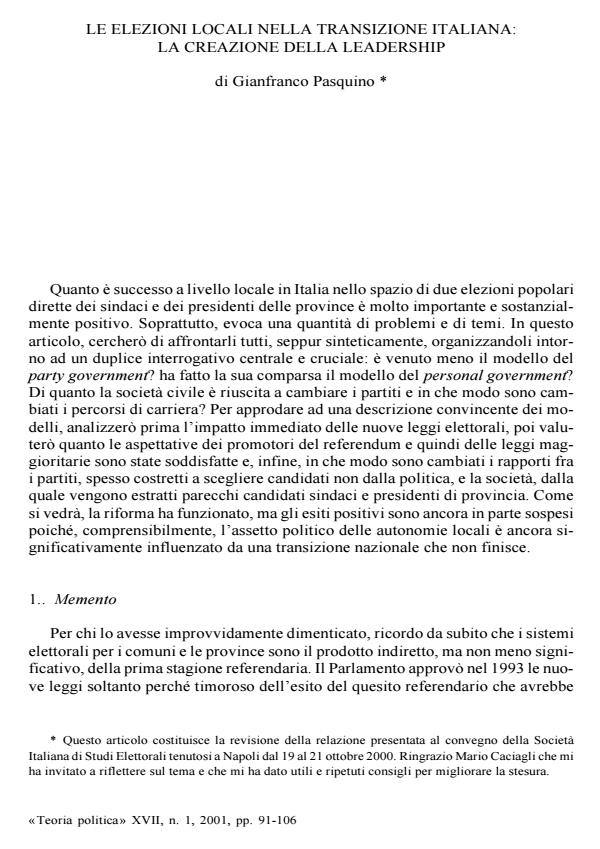Le elezioni locali nella transizione italiana: la creazione della leadership
Journal title TEORIA POLITICA
Author/s Gianfranco Pasquino
Publishing Year 2001 Issue 2001/2 Language Italian
Pages 16 P. File size 42 KB
DOI
DOI is like a bar code for intellectual property: to have more infomation
click here
Below, you can see the article first page
If you want to buy this article in PDF format, you can do it, following the instructions to buy download credits

FrancoAngeli is member of Publishers International Linking Association, Inc (PILA), a not-for-profit association which run the CrossRef service enabling links to and from online scholarly content.
This article analyses the impact of the electoral laws approved in 1993 on the formation of political leadership at the local level. Contrary to widespread skeptical expectations, the direct popular election of mayors and presidents of the provinces appears to have produced positive outcomes. The stability of local administrations and the power of the new office-holders have generally been translated into good government. However, some mayors have utilized their local office as a stepping stone to higher national office overstressing their political visibility to the expense of their governing capabilities. On the whole, it seems to be difficult to say what kind of political model has emerged at the local level. Party government is undergoing many difficulties and cannot be restored due to the irreversible decline of political parties. Personal government is not yet a reality because local political groups maintain much power in several areas of the country. The so-called civil society, though providing some popular mayors, has not yet offered a significant alternative. As long as the Italian transition does not come to a positive conclusion at the national level, even politics and administration at the local level will not be satisfactorily consolidated.
Gianfranco Pasquino, Le elezioni locali nella transizione italiana: la creazione della leadership in "TEORIA POLITICA" 2/2001, pp , DOI: